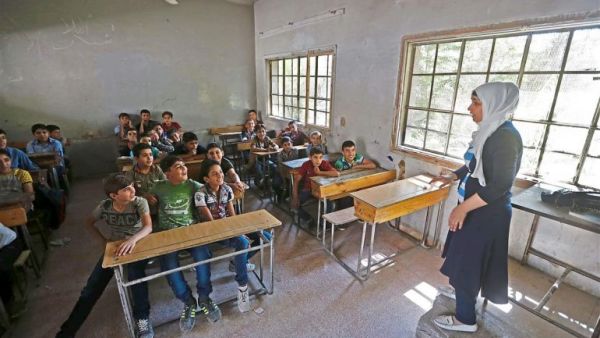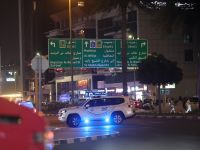Only 1.4 percent of eligible Syrian refugees are enrolled in secondary school, where there are the most serious barriers to education access for refugees in Lebanon, a report published Monday found.
“With this report, we hope to shed light on the urgent need for more funders to address the alarmingly low enrollment and completion rates of less than 5 percent at the secondary and tertiary education levels,” said Maysa Jalbout, CEO of the Abdulla al-Ghurair Foundation for Education.
The foundation, which is based in Dubai and offers educational grants to refugees, published the report, titled “Pathways to and Beyond Education for Refugee Youth in Jordan and Lebanon,” alongside the American University in Beirut’s Issam Fares Institute for Public Policy and International Affairs.
While primary education is still underfunded, it is nevertheless prioritized over secondary and tertiary, said Dr. Hana El-Ghali, Education and Youth Policy Research Program director at the IFI. “This is where the perceived highest demand is.”
She said donor funding often concentrates on the 6 to 15 age group, at which education is compulsory in most countries including Lebanon.
The academic said funding is often concentrated on the younger end of that age group, where donors can aim to target basic illiteracy.
However, “donors don’t realize the impact of not funding secondary education,” Ghali argued.
At the social level, she suggested that a more complete education, and with it better prospects, might help to prevent issues prevalent among refugee youth, such as early marriage or entry into the labor market.
Within the education sector, the lack of support for secondary education is disrupting traditional educational pathways, by which some choose after the secondary level to enter the labor market, while others choose to go into tertiary education.
“In Jordan and Lebanon we’re seeing a [educational] pipeline that is almost collapsing,” Ghali said.
Of the 5 to 8 percent of refugee communities in the two countries that go on to study at university, a lack of scholastic support can lead to large numbers of refugee youth “pursuing academic programs that are not relevant to the local job market or that of their home country,” said Samar Farah, a research associate at the Abdulla al-Ghurair Foundation.
Many refugees enroll in specialties “from which you can’t transfer a lot of skills and that are very specific, and where there aren’t a lot of jobs available, especially for refugees.”
She advocated giving refugees in education more support at earlier stages of the educational system.
“It’s about finding a balance between pursuing areas that students really want, but also ensuring that they’re aware of what their options are as they pursue that path.”
Farah also advocated more use of nontraditional learning pathways, such as through technical and vocational qualifications, or online learning, which would benefit students who aren’t able to attend universities in Beirut. “It’s a matter of finding the right alternative pathways for students beyond university that are beneficial to them that allow them to achieve the goals that they want to achieve.”
This article has been adapted from its original source.










